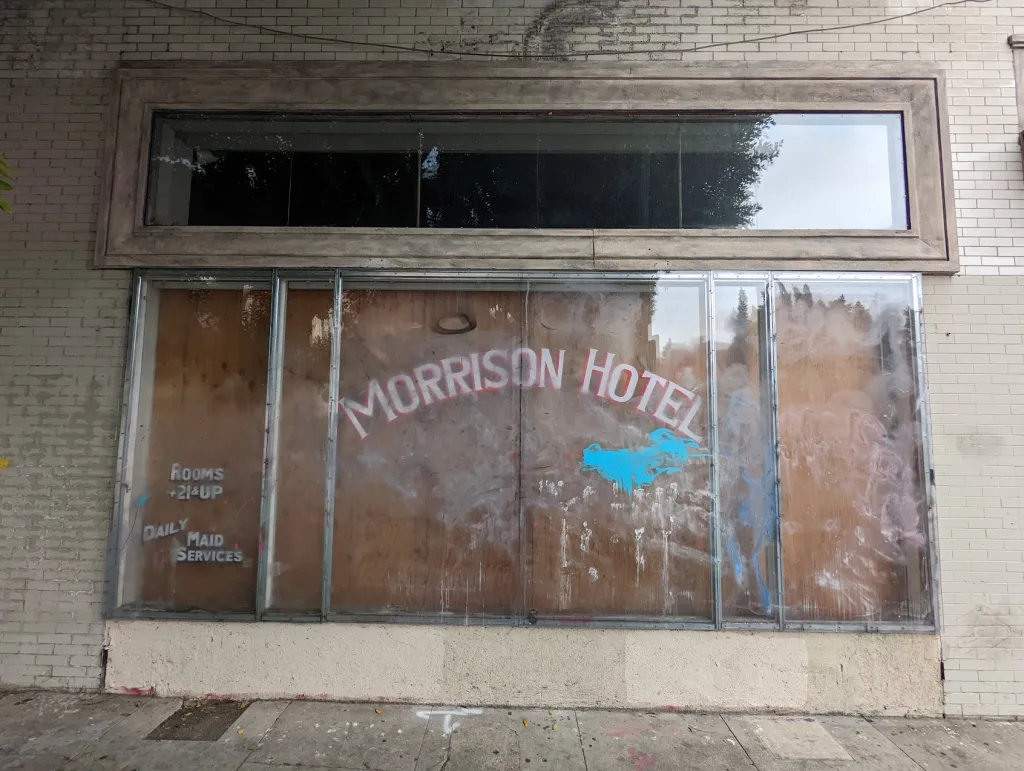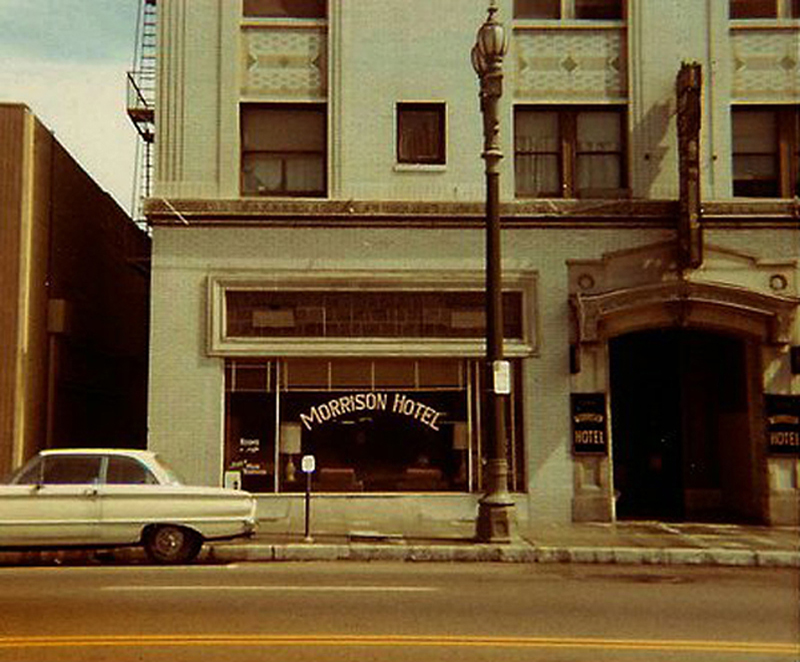Six years ago, developers slated the Morrison Hotel for redevelopment into a 444 unit hotel. Instead it will now be an affordable housing project; the latest example of adaptive reuse in LA’s downtown area. Made legendary through its association to classic rock band The Doors, Morrison Hotel speaks to a rising trend of hospitality structures reimagined as low-income housing.
Update – December 2024:
Here we are a year later and things have literally changed overnight with the former site of the Morrison Hotel going up in flames on the morning of December 26, 2024, leaving behind a charred husk. More than 100 firefighters battled the blaze for just short of two hours before containing the threat. As luck would have it, the Los Angeles Fire Department had frequently used the building for training exercises, granting them a rare familiarity that added efficiency to their efforts. However, due to the structural instability of the property, firefighters were not able to enter the building, meaning interior portions burned throughout the evening. Future plans for the structure are now unclear.
The Original Plan

Relevant Group, the original developer on the project, planned to raze the Morrison Hotel following their 2017 purchase of the property. In its stead, they envisioned a 444-unit luxury hotel. However, the Morrison Hotel has served Downtown LA with much-needed affordable housing with its single-room occupancy model. To compensate, Relevant Group’s plans included anywhere between 136 and 149 units reserved for low income residency. When the developer eventually defaulted on their loan for the project, it became apparent that plans for a luxury hotel were not meant to be.
Adaptive Reuse Under a New Buyer
In December, it came to light that Relevant Group had sold the legendary Morrison Hotel to the non-profit group AIDS Healthcare Foundation (AHF). Pivoting to adaptive reuse, AHF is working with Relevant Group to reimagine the Morrison Hotel as a multi-family building offering 111 units of low-income housing. Relevant Group had actually been searching for takers on a development partnership by offering a 50 percent stake in their initial plan as far back as last year. While AHF’s outright purchase of the property obviously supersedes such an agreement, both companies have signed a “development cooperation agreement” showing that Relevant Group is still very much involved in plans for adaptive reuse.
Details of the Sale
AHS is said to have paid around $12 million for the Morrison Hotel located at 1246 Hope Street. It’s a loss for Relevant Group, who paid $18 million for the iconic Morrison Hotel in 2018. The initial developers also dropped another $20 million in pursuit of surrounding properties. It’s not all bad news for Relevant Group. Columbia Pacific Advisors served the developers with a notice of default in September claiming they owed $13.2 million. Through AHS’ purchase, the loan default is now considered resolved.
Subject to Measure ULA
The sale of the Morrison Hotel to AHS was subject to the controversial and deceptively nicknamed “Mansion Tax.” Measure ULA passed at the end of 2022, instituting a 4 percent tax on property sales over $5 million and 5.5 percent on properties over $10 million. The “Mansion Tax” nickname carried implications that the tax only applied to residential sales. However, commercial sales, most of which exceed the $5 million threshold, are still subject to the tax.
A History of Adaptive Reuse
While AHF may seem like an unlikely buyer for the Morrison Hotel, this isn’t their first foray into commercial investment. The non-profit also purchased downtown’s Barclay Hotel. Another example of adaptive reuse, the hotel has since shifted to provide affordable living to underprivileged residents.
The Legacy of the Morrison Hotel
The Morrison Hotel is recognized outside of the real estate and hospitality industries as the location used in album cover photography for rock group The Doors’ 1970 album Morrison Hotel. A reference to iconic vocalist Jim Morrison, Morrison Hotel received critical and commercial acclaim upon release. The cover was captured in an inspired moment of guerilla photography by Henry Diltz without the permission of the Morrison Hotel’s management.


Comments
Post a Comment